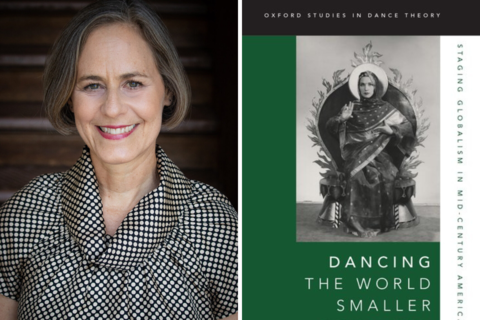The Dance Studies Association has recently shortlisted Rebekah Kowal’s 2020 book Dancing the World Smaller for the 2023 Oscar G. Brockett Prize for Dance Research. The award, which is given out on an annual basis, is granted to the best book in dance published in the past three years. As one of the three finalists, Kowal could win the award and receive the $1,000 monetary prize alongside it.
“It’s the dream of a lifetime,” reflects Kowal on the achievement. “It’s one of the top research awards in my field. In my experience, it recognizes books that have an enduring impact, and the previous publications to win this award have been some of my favorites.”

In addition to her most recent book, Kowal has also published work in The Oxford Handbook of Dance and Ethnicity, Dance Research Journal, The Drama Review, and more. At the University of Iowa, she serves as a professor, graduate advisor, mentor, and the DEO of the Department of Dance. She is also an Executive Co-Editor of the Dance Research Journal and is on the Board of Directors of the National Association of Schools of Dance.
Kowal says the creation of the book and its archival basis took roughly ten years, and that the idea for it was found while conducting research at the New York Public Library for the Performing Arts, specifically focusing on articles written about dance from 1940-1955.
“I noticed patterns of interest in global dance performance during those years, which interested me; that was not something I knew about, or that I knew anyone had written about,” says Kowal.
“The book spans 1942-1953, looking primarily at globalism in dance in NYC, and the ways that that was aligned with globalist impulses in government and politics.”
Kowal’s book intends to connect the seemingly separate topics of dance and globalism during and shortly after World War II, as well as examine the impact they had on American audiences as a whole. She also hopes her writing will create a unique framework through which to view historical and current politics.
Kowal goes on to express her gratitude for the support she received from the University of Iowa and the College of Liberal Arts and Sciences, especially from the many students who helped her along the way.
“I just want to give a huge shoutout to the university for its support of my work here,” says Kowal. “Over the course of this research, I enlisted the help of many students through the Office of Undergraduate Research and Honors at Iowa.”